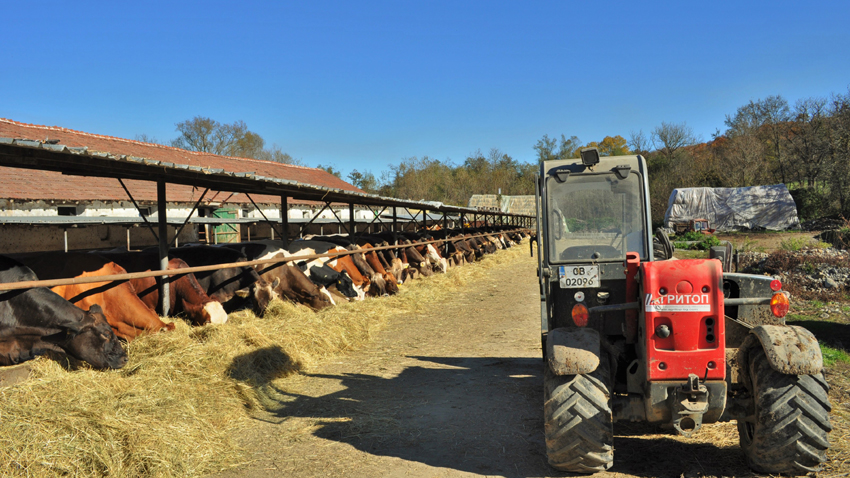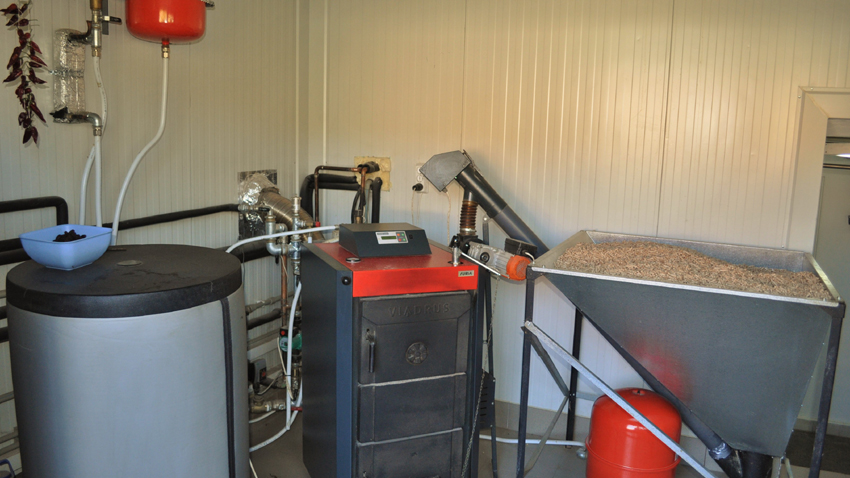Is it easy to be a farmer in Bulgaria? With plenty of work and imagination one might deal with the avalanche of administrative obstacles and troubles that inevitably hit every entrepreneur in Bulgaria If you manage to attract foreign funding for development you could make modest profit. This is the case with Rositsa and Ivan Danchev from the village of Dobrodan near Trojan. They are owners of the first certified organic farm for cow's milk in the country.

The Danchevs take care of 110 cows and they sell the milk they produce to local dairies. The family own meadows and pastures, as well as areas on which they grow crops to feed the animals. In order to develop successful business, Rositsa and Ivan rely not only on entrepreneurship and optimism. Some time ago they received European financing for two projects for buying modern European equipment. This way they bought lawn mowers, trailers, mixers and so on. Everything was going slow at first and it was hard but maybe we got used to the procedures and now the obstacles are fewer, Ivan says.
The latest improvement to the farm was also realized with foreign financing. This is an installation for water heating, which uses heat from the cooling milk in combination with solar energy and wood pellets. The system was developed by Bulgarian scientists and it reduces the cost of electricity by two thirds. The project is supported by the largest Norwegian non-governmental organization Norges Vel and was realized with financial support from the Norwegian Financial Mechanism - Green Industry Innovation.

"This is one of three pilot farms in the country that have this innovative system," Mrs.Jorunn Tonnesen from Norges Vel says and adds:
English: Alexander Markov
Photos: Veneta NikolovaThe 33rd Bulgarian polar expedition is heading to Antarctica to continue its scientific research in cooperation with scientists from different countries. For the first time, travelers from two Balkan countries - Greece and Montenegro, as well as from..
The program of the Orthodox Book Week offers meetings with authors, publishers and translators of Orthodox books from the last few years. The event is held until November 10 at the ''St. Procopius of Varna'' Church, with meetings taking place every..
The "Kabiyuk" horse breeding farm in the village of Konyovets is the oldest stud farm in Bulgaria, founded in 1864 by Midhat Pasha, the governor of the vilayet of Ruse, to produce horses for the Turkish army. The farm existed until the Russo-Turkish War..
Nuredin Nuredinaj comes from the historical-geographical region of Gòra in Northeastern Albania, where 90% of the inhabitants identify themselves as..

+359 2 9336 661
